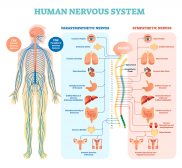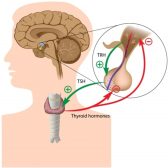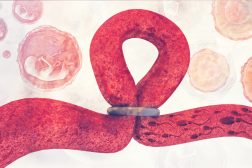Definition
noun
A condition that is characterized by uncontrolled bleeding from the mouth, gums, lips, and tongue, haematuria, haemarthoses, and subcutaneous and intramuscular haemorrhages, and is caused usually by a defect in the gene resulting in the deficiency or impairment in the production of particular blood coagulation factors
Supplement
Haemophilia is a congenital tendency to uncontrolled bleeding from the mouth, gums, lips, and tongue. Other symptoms include haematuria, haemarthoses, and subcutaneous and intramuscular haemorrhages. Individuals suffering from haemophilia may be in danger from too much blood loss from wounds or injuries that would not heal due to a loss or an impairment in the normal blood clotting.
There are two major forms of haemophilia: (1) haemophilia A (also called classic haemophilia or factor VIII deficiency) and (2) haemophilia B (also called Christmas disease or factor IX deficiency). Haemophilia is often affecting males and is transmitted from mother to son. Both haemophilia A and haemophilia B are caused by a gene defect near the telomere of the long arm of the X chromosome although the loci affected are different in the two forms. The nonfunctional gene results in the deficiency of factor VIII (in haemophilia A) and of factor IX (in haemophilia B).
Other forms, such as haemophilia C (due to a deficiency in factor XI) and parahaemophilia (due to a deficiency in factor V), are relatively uncommon types of haemophilia. Unlike haemophilia A and B, haemophilia C has an autosomal recessive inheritance involving a gene defect on chromosome 4.
Haemophilia is predominantly inherited and congenital. However, it may also be acquired especially in individuals with cancers and autoimmune disorders.
Variant(s):
- hemophilia
Synonym(s):
See also:
- Christmas disease
- Christmas factor
- coagulation
Related term(s):
Related form(s):
- haemophiliac (adjective, of or pertaining to hemophilia)







